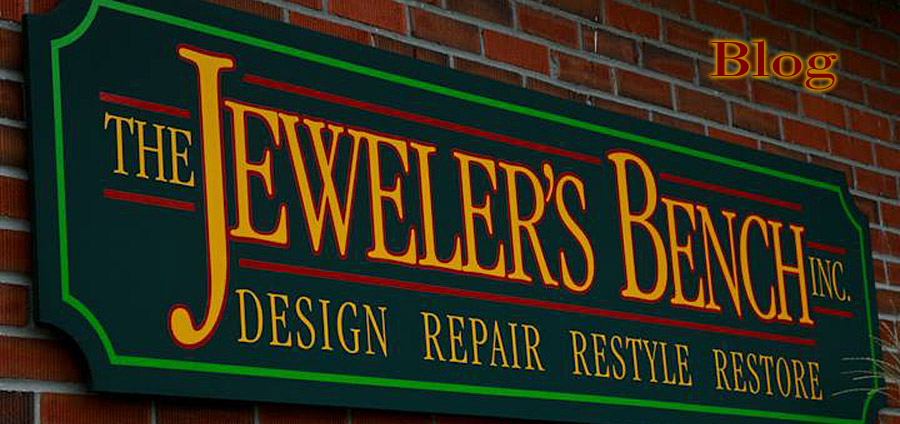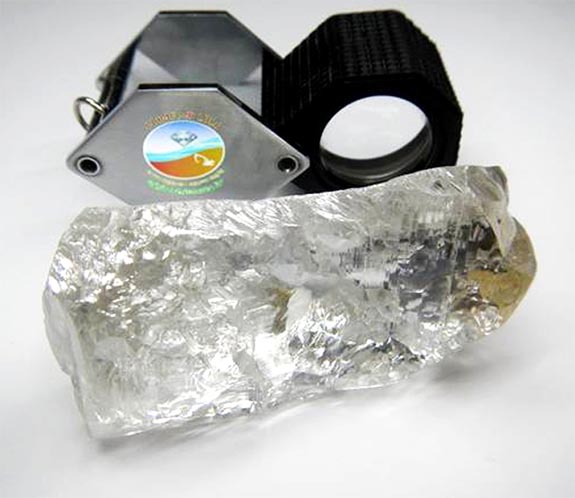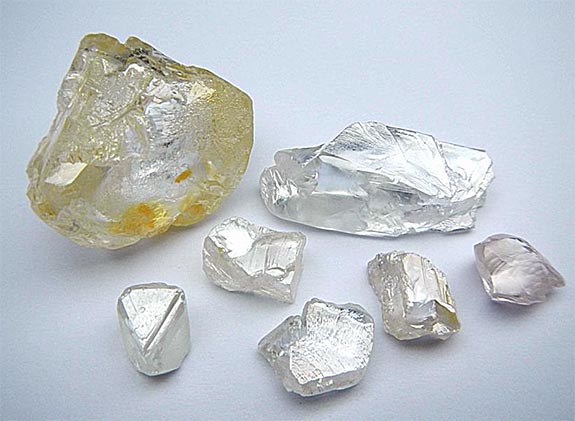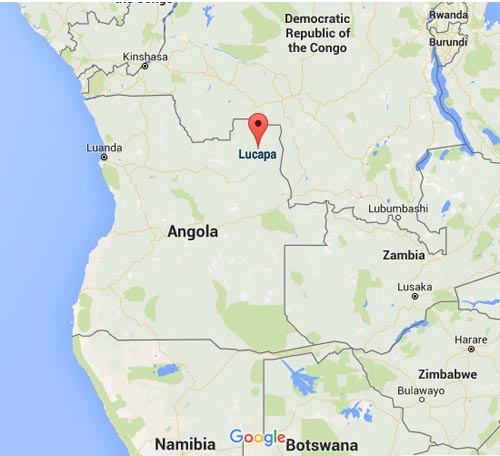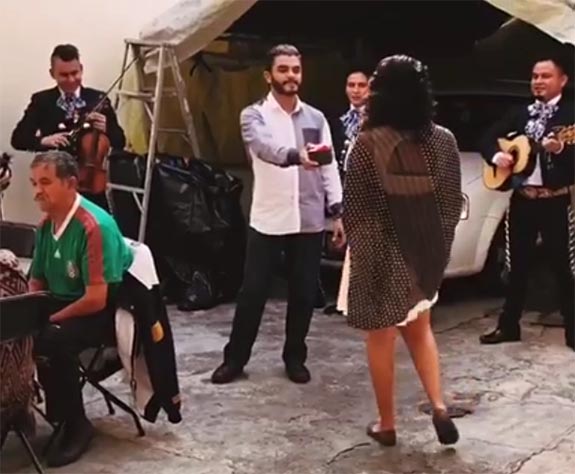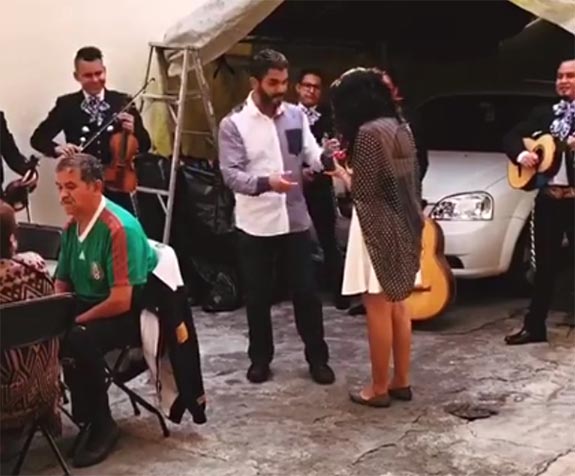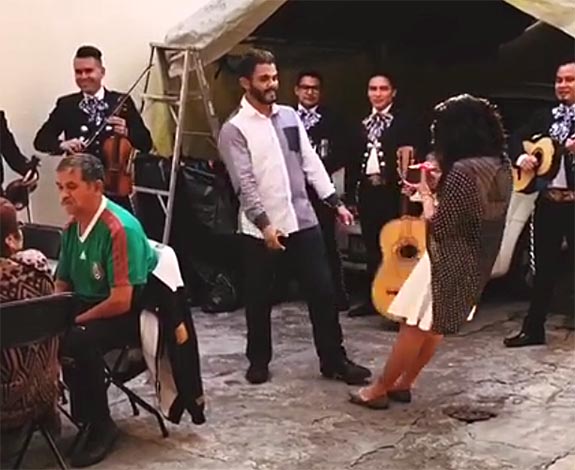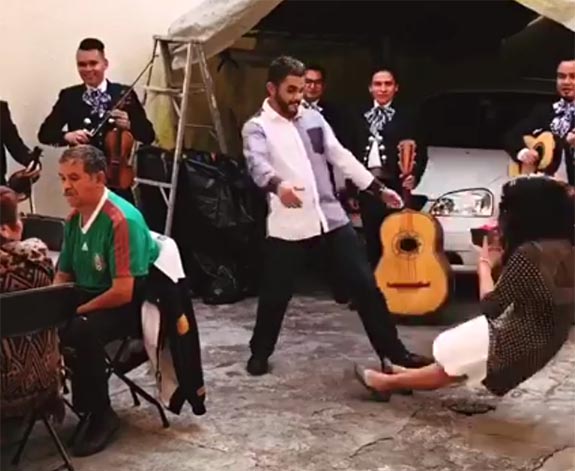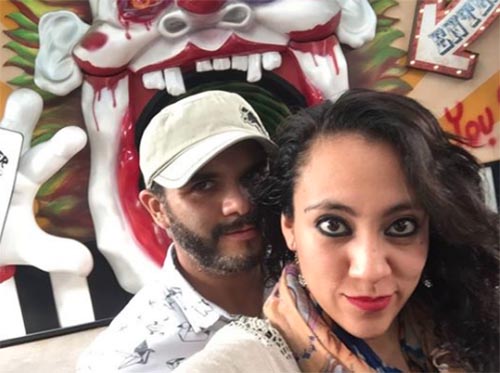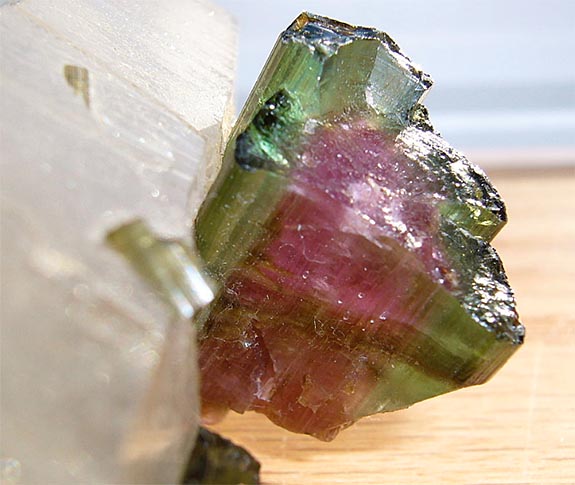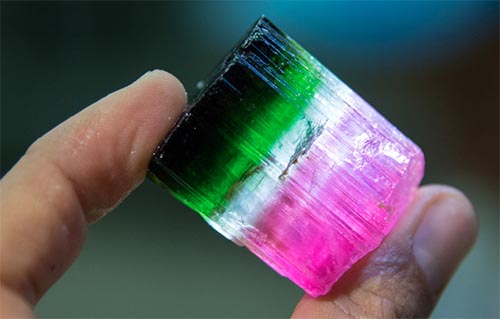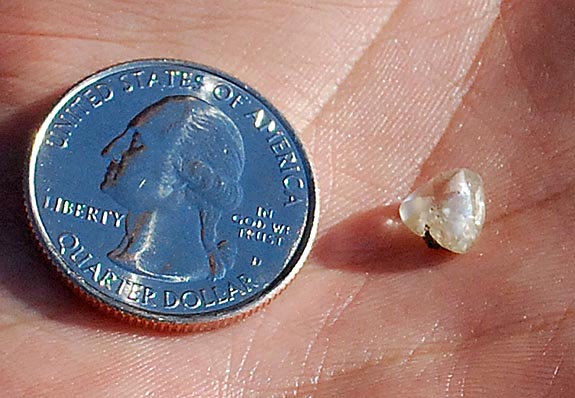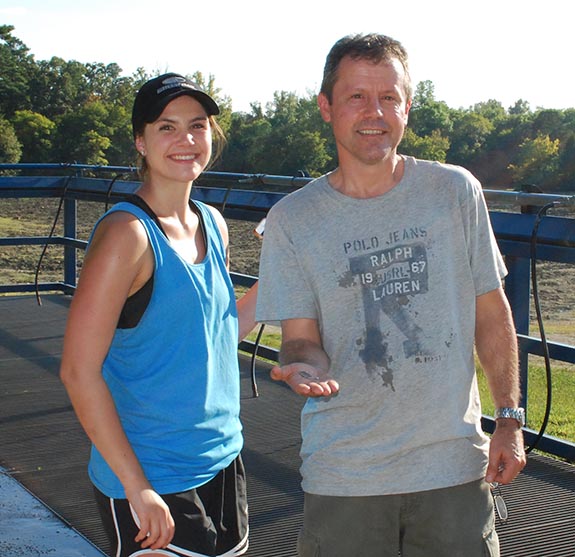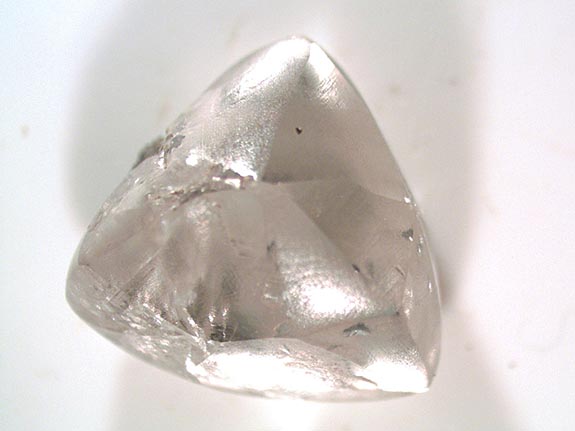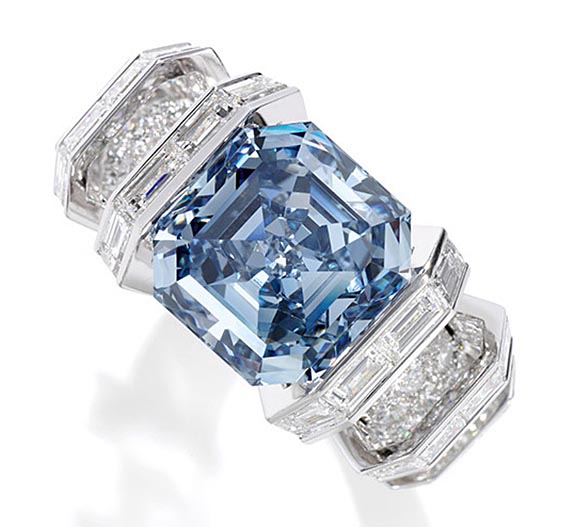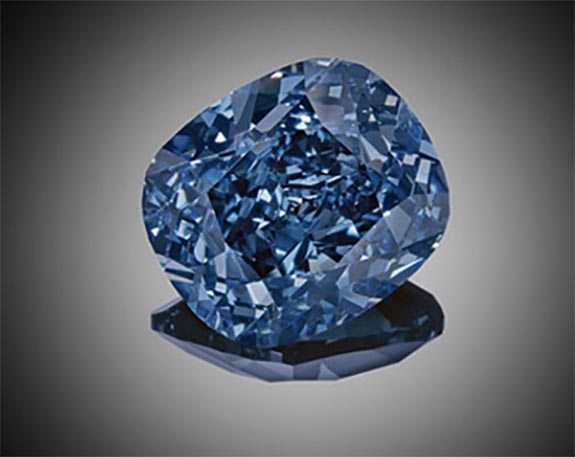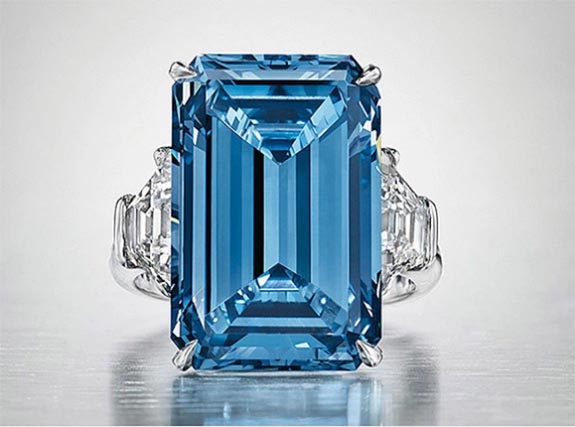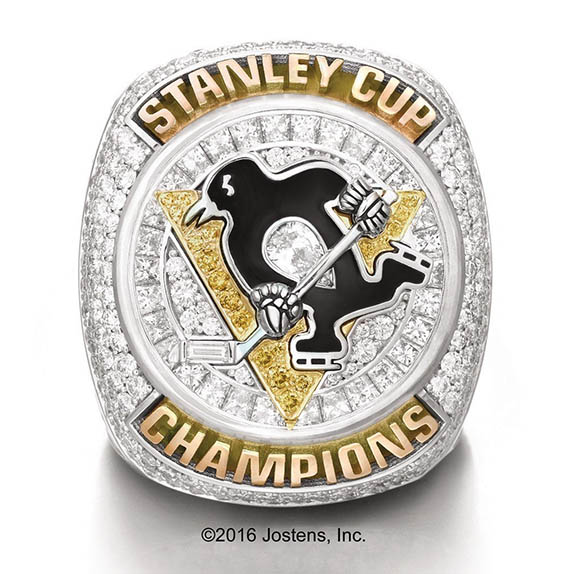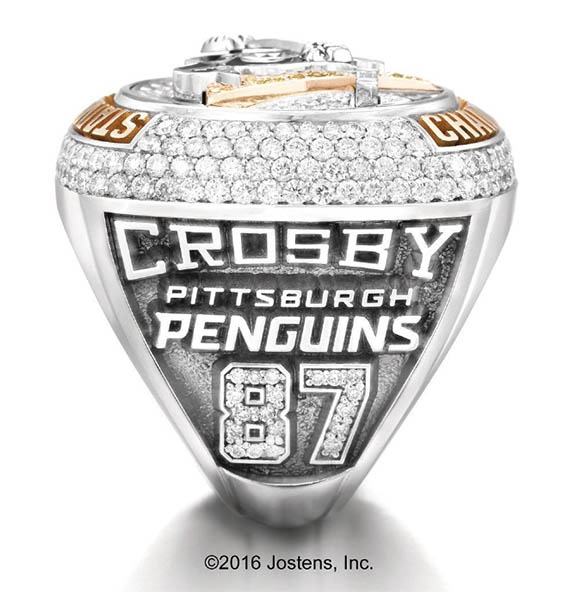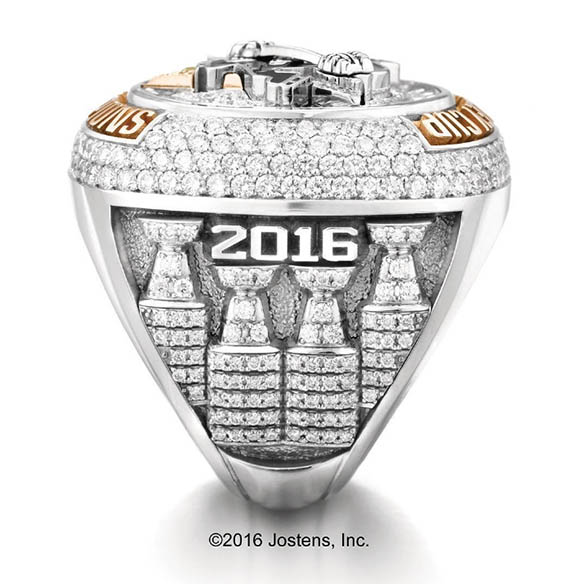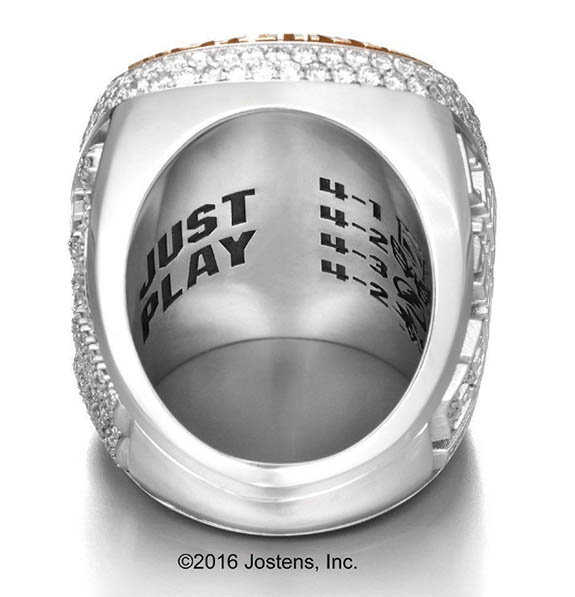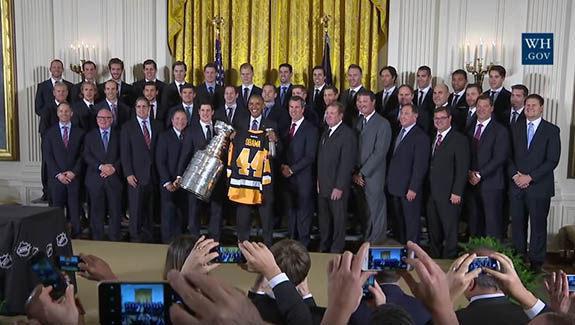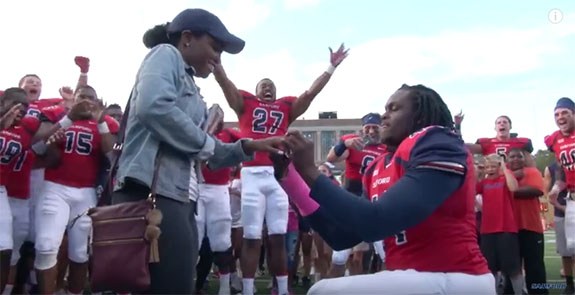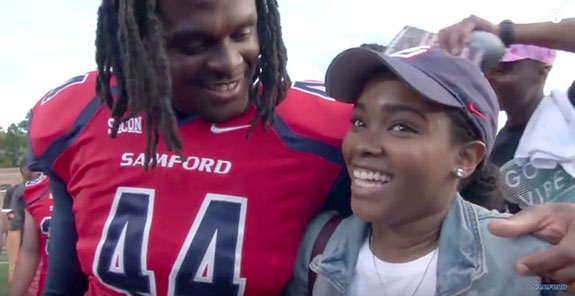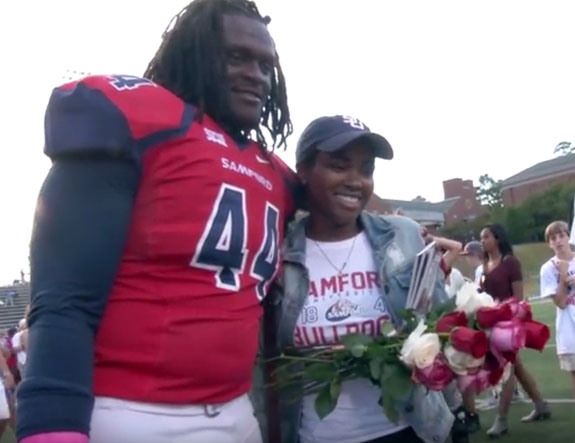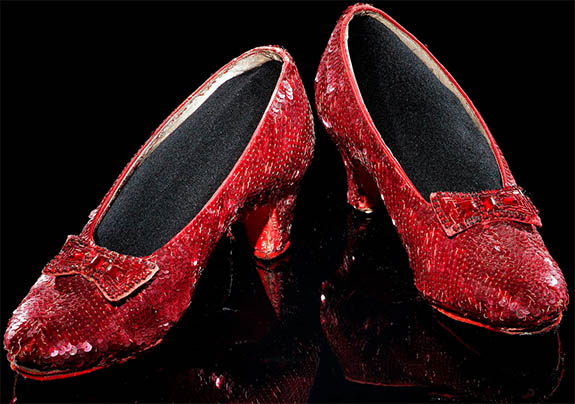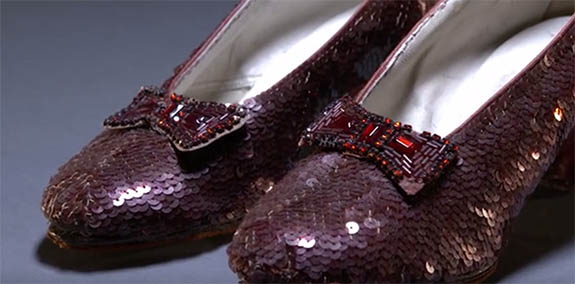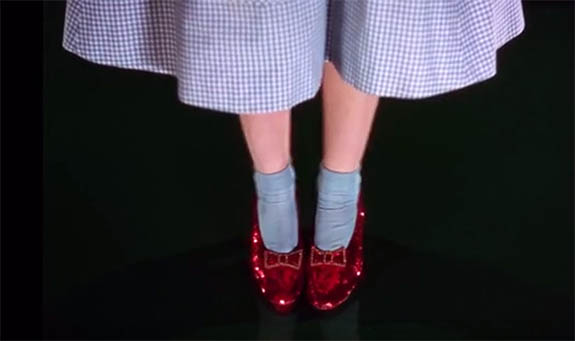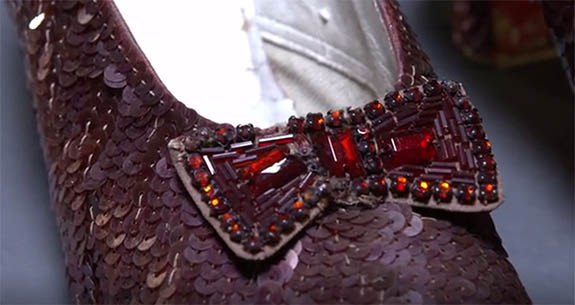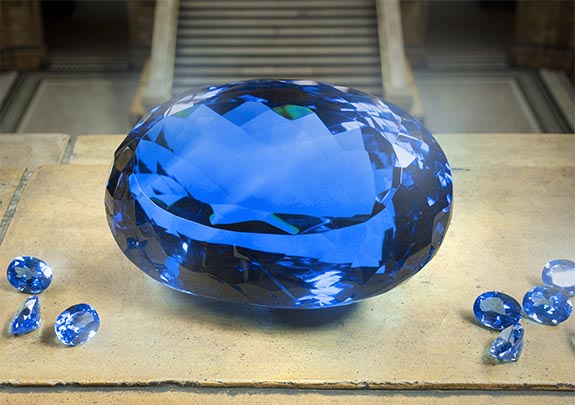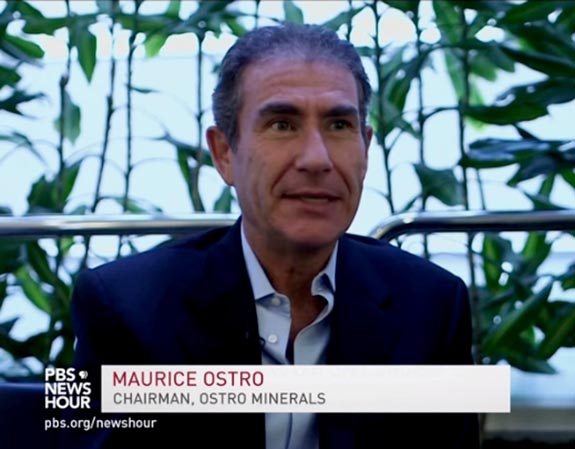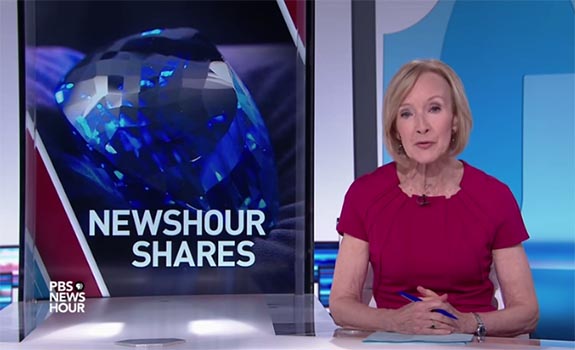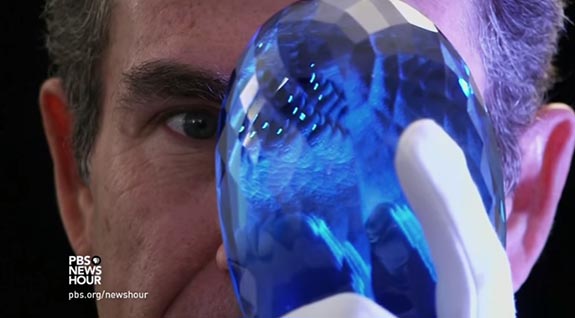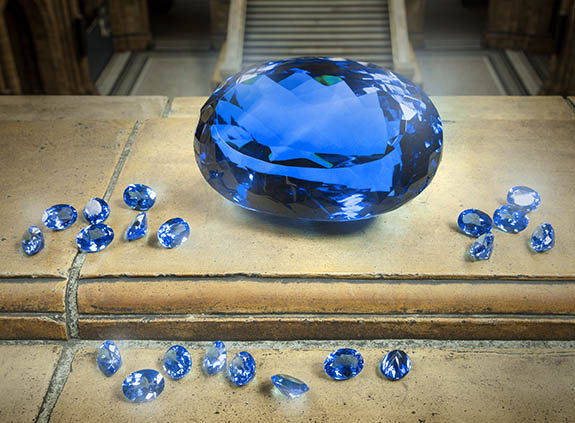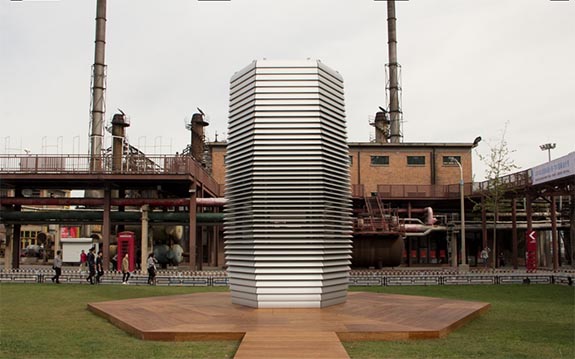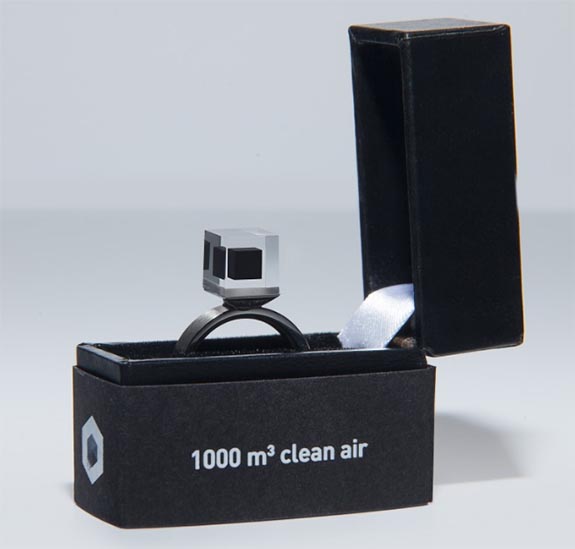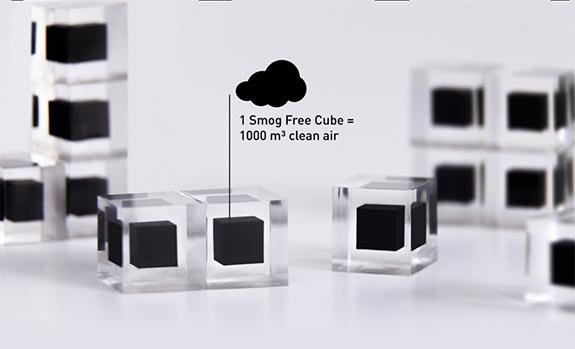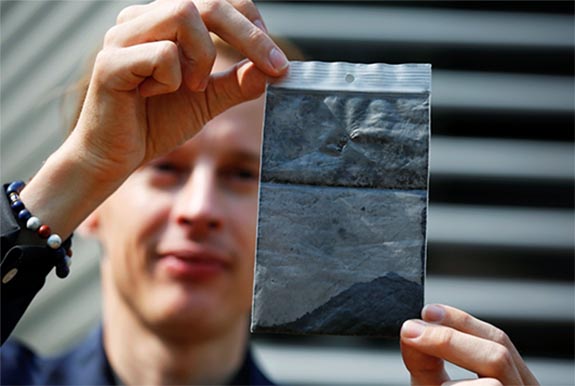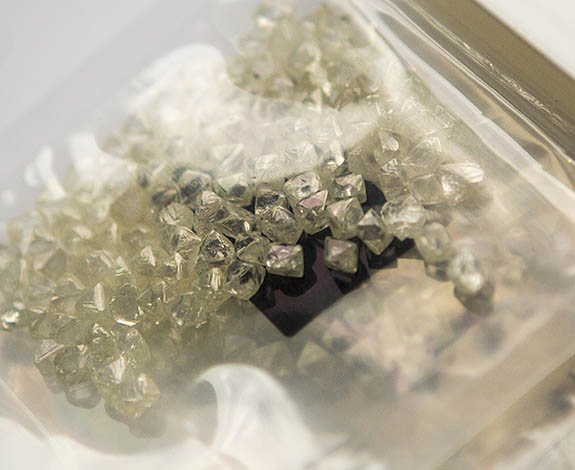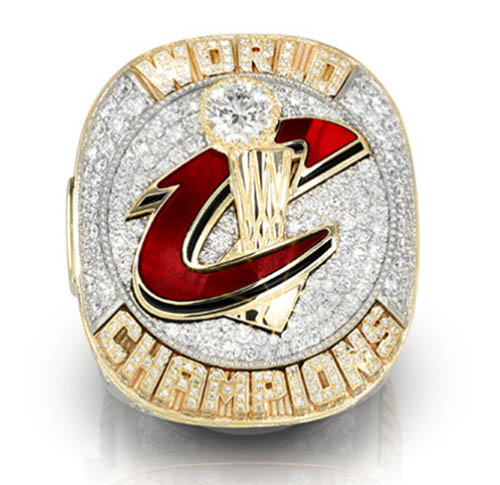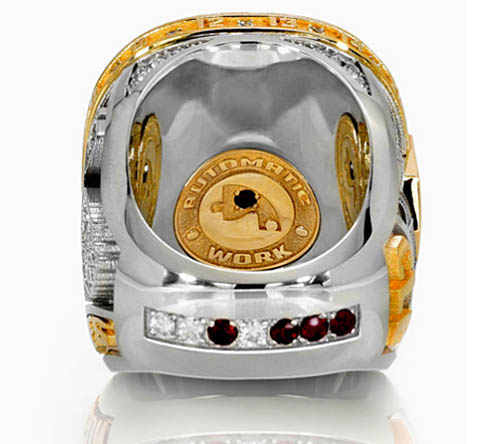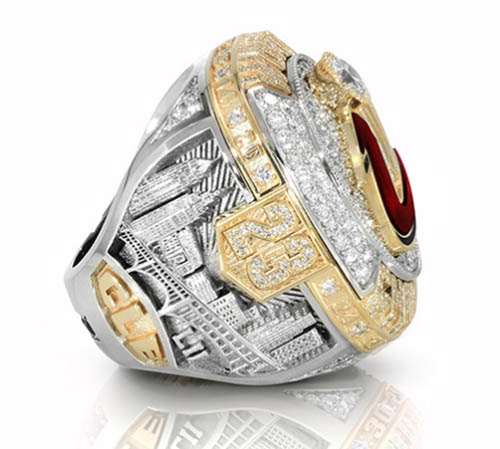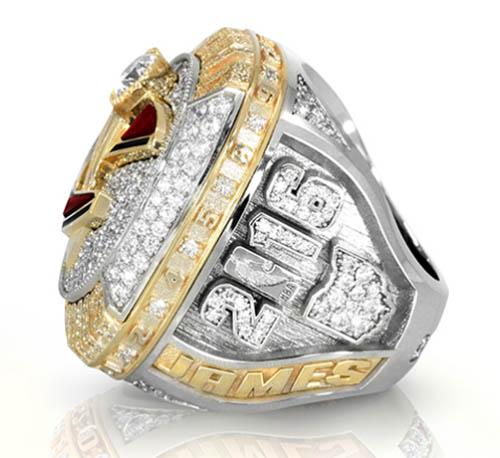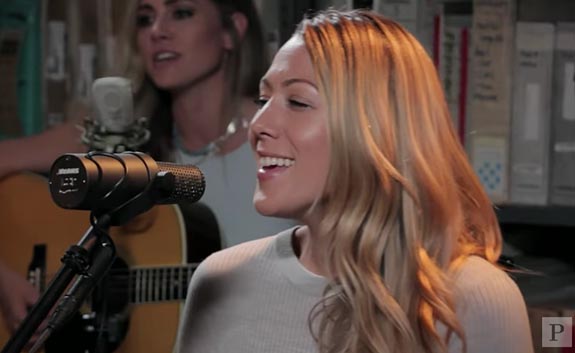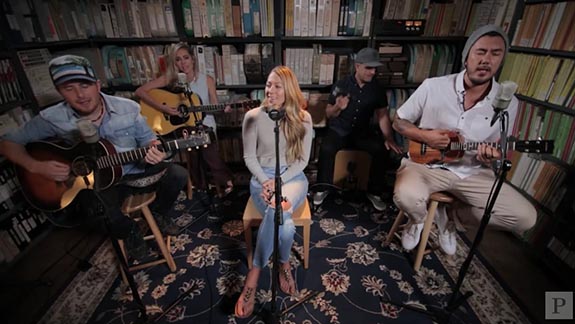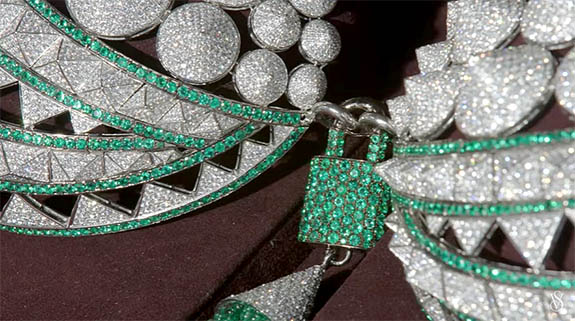October 3rd, 2016
Every once in a while nature delivers something so unusual, so spectacular that even the curator of the Smithsonian's National Gem Collection is impressed.
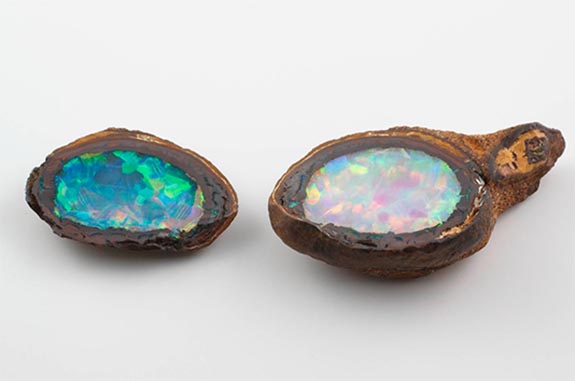
In January of 2011, the National Museum of Natural History in Washington, D.C., welcomed its newest resident, the "Yowah Nut Opal." It weighed 29.83 carats and, at first glance, looked like a nugget of rusted metal.
A cross section of the Yowah Nut revealed a gem-quality opal hidden inside. This is certainly nature's most surprising example of October's official birthstone.
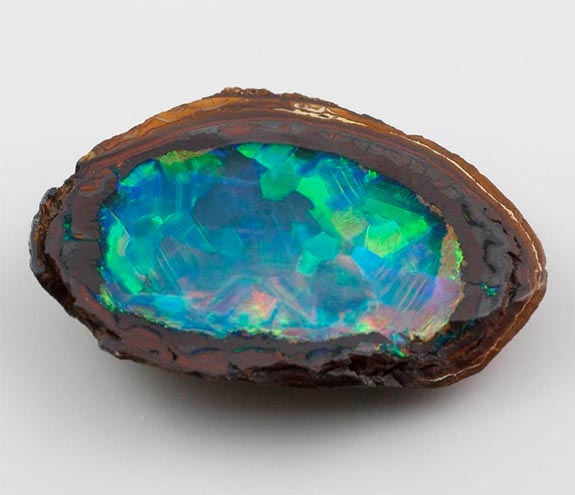
"It reminds you that the earth is a pretty amazing place and we haven't seen everything yet," stated Jeffrey E. Post, Ph.D., curator of the National Gem and Mineral Collection. "There's always a surprise waiting for us in the earth somewhere and this is just a great example of that kind of a surprise."
Post added that the donor who contributed the Yowah Nut Opal to the Smithsonian called the specimen his "OMG opal" because every time he would open it up, somebody would say, "Oh, my gosh."
"And we have the same reaction," Post said.
Yowah Nuts — the largest of which are 20cm (7.8 inches) across — are found exclusively in the Yowah opal field, which is located in Queensland, Australia. According to the Smithsonian, opal dealer Bryan Rossiter discovered the field in the 1880s. Opal mining was extremely challenging because of the intense heat, extreme drought and the lack of vegetation.
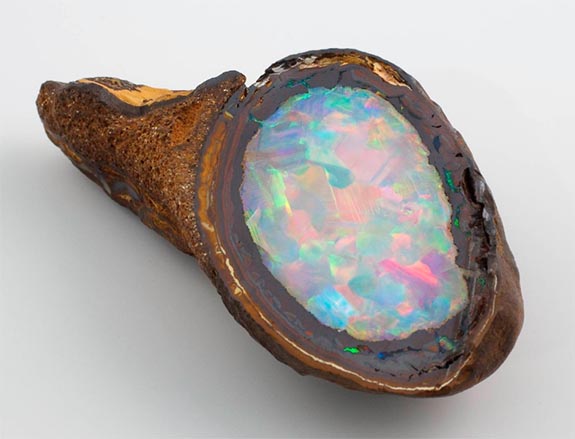
Opal miners learned to keep their eyes open for ironstone nodules, or concretions, that looked like nuts. When cracked or sliced in half, some "nuts" would reveal a valuable gem opal in the center.
The Yowah Nut on display at the Smithsonian was a gift of the Texas-based Richard Ashley Foundation. Rod Griffin, the miner who discovered this opal nut, told the Smithsonian it is the finest he has unearthed to date.

The gem displays flashes of red, orange, yellow, green, blue and purple. One side of the Yowah Nut has a bluish body color while the other side is more milky in tone. Post explained that the difference in color is attributed to the thickness of each slice. Post talks about the gem in great detail in this video posted at the Gemological Institute of America's website.
One of October’s official birthstones, the precious opal is universally loved because it often presents all the colors of the rainbow. Each opal is truly unique and more than 95% of fine opals are sourced in Australia.
Scientists believe that between 100 million and 97 million years ago, Australia’s vast inland sea, which was populated by marine dinosaurs, began retreating. As the sea regressed, a rare episode of acidic weather was taking place, exposing pyrite minerals and releasing sulphuric acid. As the surface of the basin dried further and cracked, silica-rich gel became trapped in the veins of the rock. Over time, the silica solidified to form opals.
Credits: Photos by Ken Larsen/Smithsonian National Museum of Natural History/National Gem Collection. Video screen capture via GIA.edu.

In January of 2011, the National Museum of Natural History in Washington, D.C., welcomed its newest resident, the "Yowah Nut Opal." It weighed 29.83 carats and, at first glance, looked like a nugget of rusted metal.
A cross section of the Yowah Nut revealed a gem-quality opal hidden inside. This is certainly nature's most surprising example of October's official birthstone.

"It reminds you that the earth is a pretty amazing place and we haven't seen everything yet," stated Jeffrey E. Post, Ph.D., curator of the National Gem and Mineral Collection. "There's always a surprise waiting for us in the earth somewhere and this is just a great example of that kind of a surprise."
Post added that the donor who contributed the Yowah Nut Opal to the Smithsonian called the specimen his "OMG opal" because every time he would open it up, somebody would say, "Oh, my gosh."
"And we have the same reaction," Post said.
Yowah Nuts — the largest of which are 20cm (7.8 inches) across — are found exclusively in the Yowah opal field, which is located in Queensland, Australia. According to the Smithsonian, opal dealer Bryan Rossiter discovered the field in the 1880s. Opal mining was extremely challenging because of the intense heat, extreme drought and the lack of vegetation.

Opal miners learned to keep their eyes open for ironstone nodules, or concretions, that looked like nuts. When cracked or sliced in half, some "nuts" would reveal a valuable gem opal in the center.
The Yowah Nut on display at the Smithsonian was a gift of the Texas-based Richard Ashley Foundation. Rod Griffin, the miner who discovered this opal nut, told the Smithsonian it is the finest he has unearthed to date.

The gem displays flashes of red, orange, yellow, green, blue and purple. One side of the Yowah Nut has a bluish body color while the other side is more milky in tone. Post explained that the difference in color is attributed to the thickness of each slice. Post talks about the gem in great detail in this video posted at the Gemological Institute of America's website.
One of October’s official birthstones, the precious opal is universally loved because it often presents all the colors of the rainbow. Each opal is truly unique and more than 95% of fine opals are sourced in Australia.
Scientists believe that between 100 million and 97 million years ago, Australia’s vast inland sea, which was populated by marine dinosaurs, began retreating. As the sea regressed, a rare episode of acidic weather was taking place, exposing pyrite minerals and releasing sulphuric acid. As the surface of the basin dried further and cracked, silica-rich gel became trapped in the veins of the rock. Over time, the silica solidified to form opals.
Credits: Photos by Ken Larsen/Smithsonian National Museum of Natural History/National Gem Collection. Video screen capture via GIA.edu.
